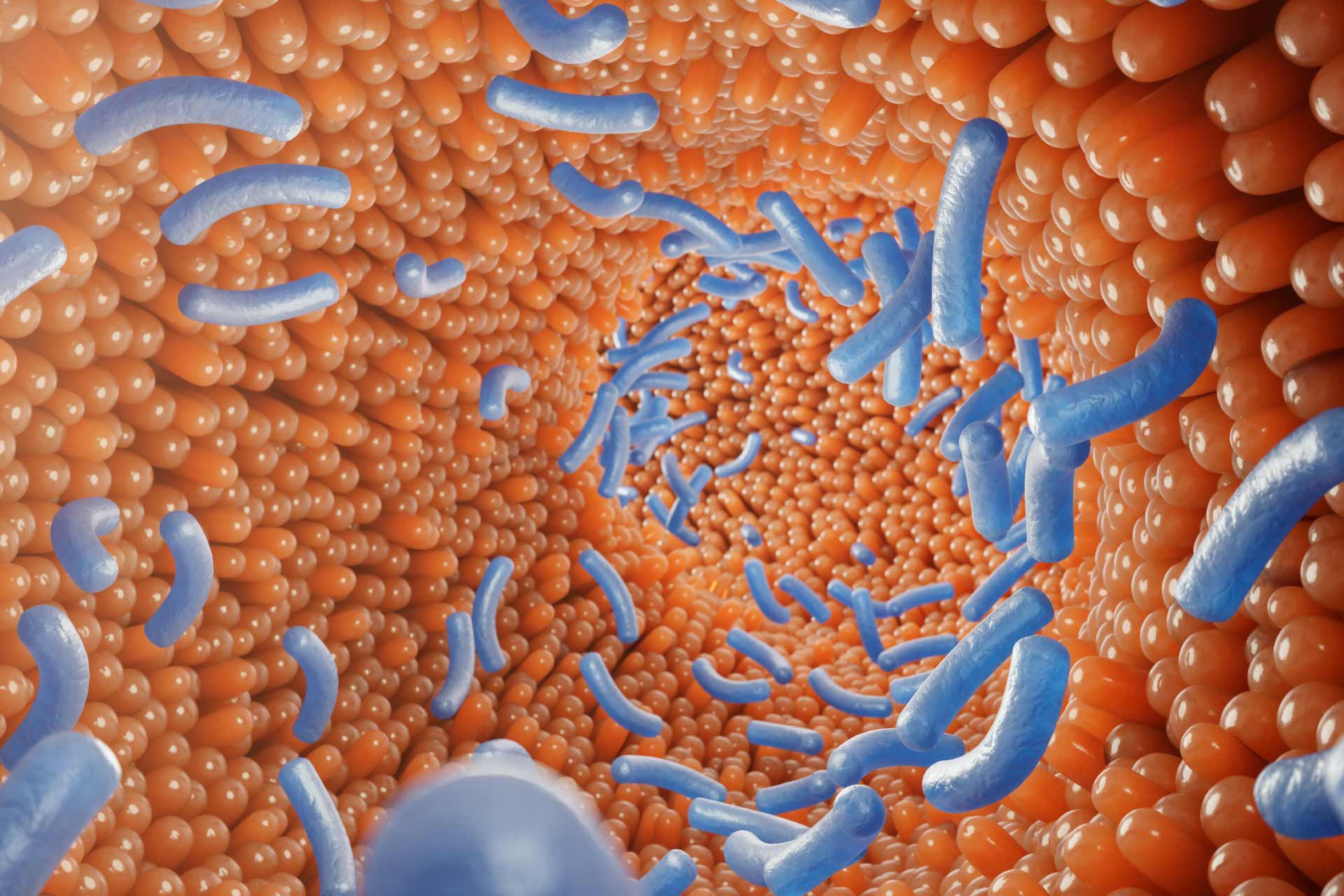[toc]
What is already known on this topic
Several studies have identified specific bacteria that are abundant in people with autoimmune diseases, including rheumatoid arthritis, inflammatory bowel disease, and multiple sclerosis. Bacterial activation of immune cells called T helper 17 (Th17) cells can worsen conditions such as arthritis in mice, but how human bacteria influence Th17-driven conditions remains unclear.
What this research adds
Working in mice, researchers showed that the human gut microbe Eggerthella lenta induces intestinal activation of Th17 cells. The bacterium is abundant in people with inflammatory bowel disease, and it worsens colitis in mice.
Conclusions
The findings support the idea that gut bacteria may drive Th17-dependent autoimmune conditions.
Several studies have identified specific bacteria that are abundant in people with autoimmune diseases, including rheumatoid arthritis, inflammatory bowel disease, and multiple sclerosis. New research reveals that the human gut microbe Eggerthella lenta activates specific immune cells and worsens colitis in mice.
The findings, published in Cell Host & Microbe, support the idea that gut bacteria may drive some autoimmune conditions. “Our results add E. lenta to the growing list of immunomodulatory microorganisms relevant to [inflammatory bowel disease] and emphasize the importance of considering the impact of strain-specific microbial metabolism on immune responses and autoimmunity,” the researchers say.
Bacterial activation of immune cells called T helper 17 (Th17) cells can worsen conditions such as arthritis in mice. In humans, specific members of the microbiota have been shown to activate Th17 cells, but how human bacteria influence Th17-driven conditions remains unclear.
Previous studies have shown that the gut microbe E. lenta is abundant in people with different autoimmune diseases. So, Peter Turnbaugh at the University of California San Francisco his colleagues set out to determine if E. lenta could activate Th17 cells in mice.
Worsening disease
The researchers found that E. lenta promotes the activity of Th17 cells in the presence or absence of gut microbiota. The bacterium appears to induce the immune cells by lifting the inhibition of the Th17 transcription factor Rorγt through cell- and antigen-independent mechanisms.
These findings, the researchers say, “may explain the broad associations of this bacterial species across multiple autoimmune diseases with distinct antigenic stimuli.”
Further experiments showed that E. lenta worsens colitis in mice — a phenomenon that is likely due to an enzyme called cardiac glycoside reductase 2, or Cgr2. The researchers found that Cgr2 is sufficient to induce a pro-inflammatory molecule produced by Th17 cells in response to their stimulation.
Immune activation
Next, the researchers tested if E. lenta is abundant in people with inflammatory bowel disease (IBD). By analyzing stool samples from 105 IBD patients and 100 healthy people, they found that the levels of E. lenta were higher in individuals with IBD. “With previous studies, these findings indicate that E. lenta is elevated in a range of autoimmune diseases, revealing a broad association of E. lenta with autoimmunity,” the authors sayqd.
An analysis of data from people with different autoimmune conditions further showed that Cgr2 levels tend to be higher in individuals with ulcerative colitis, Crohn’s disease, and rheumatoid arthritis compared to healthy people. E. lenta levels were higher in ulcerative colitis patients with more severe disease, the team found. “These results provide initial support for the translational relevance of this specific bacterial gene in human autoimmunity,” the authors say.
Given the role of E. lenta in autoimmune diseases, the researchers set out to identify a non-invasive strategy for blocking the microbe’s activity without disrupting the gut microbiota. They found that dietary arginine could inhibit Th17 activation and colitis induction by E. lenta.
These results provide insights into the general mechanisms through which diet can impact microbial-derived metabolites that affect the immune system. This supports the idea that diet could be used to alter microbial immunomodulation, the authors say.









